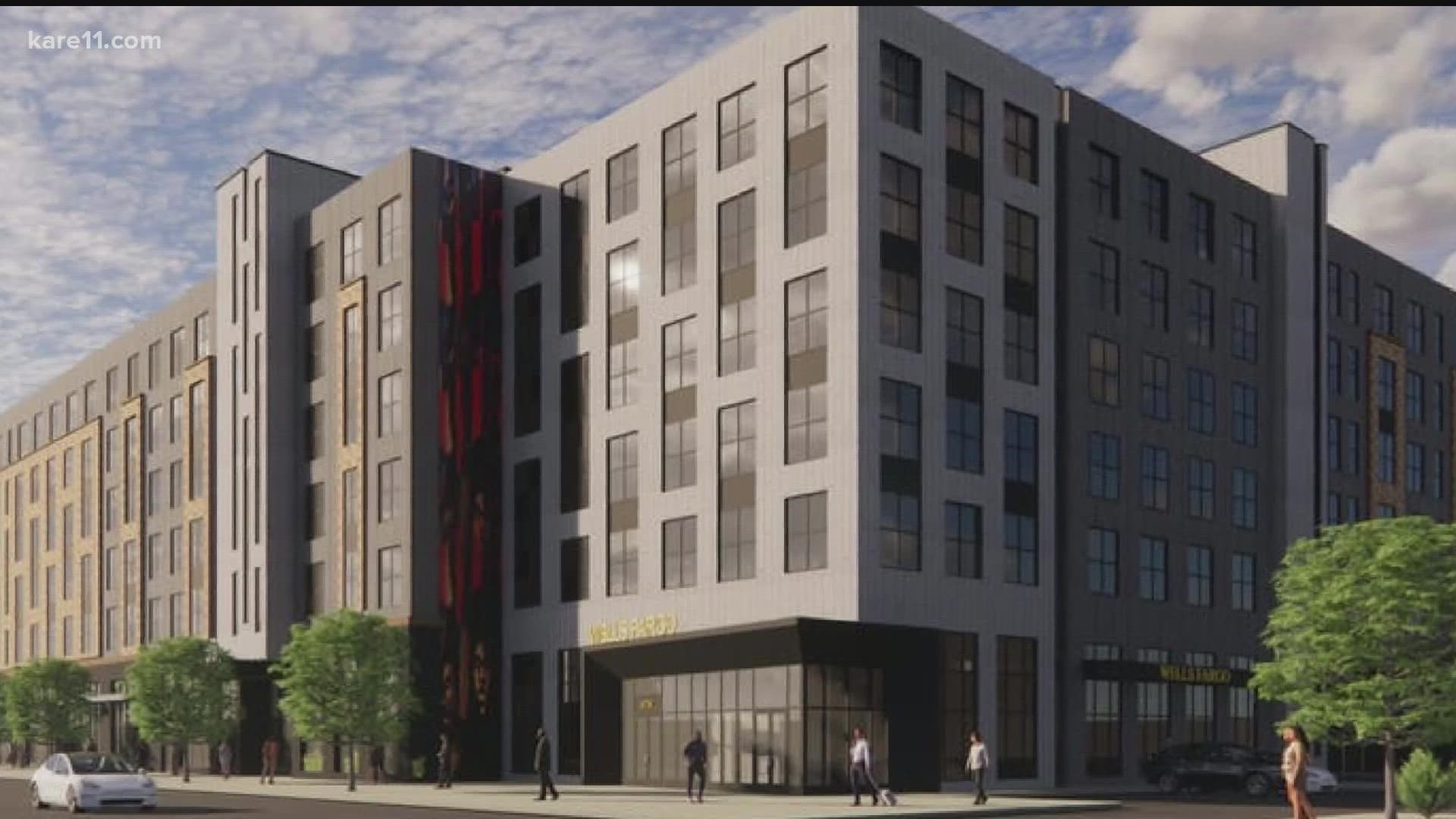MINNEAPOLIS — The Minneapolis City Council Thursday voted to spend $16.8 million on grants to nonprofit agencies to help build 10 affordable housing projects across the city. It's part of a larger effort designed to address the dire shortage of affordable housing that has been exacerbated by the COVID pandemic.
"These investments will make a huge difference for low-income people in our city, for people for color, particularly women with children," City Council President Andrea Jenkins told reporters.
The movement to close the housing gap is moving at an accelerated pace in Minnesota, with efforts underway by cities, counties, the Met Council, the State, nonprofits and private developers. Minneapolis has significantly increased its partnership to expand affordable housing in recent years.
"We want to continue year after year because we know if we just go in on a one-time basis, we’re not going to sufficiently attack the issue," Mayor Jacob Frey remarked.
One of the projects receiving a city grant is a 110-unit affordable housing project being built called Project for Pride in Living at 3030 Nicollet Avenue South. It's the vacant lot where the Wells Fargo Bank sat before it was severely damaged by rioters during the civil unrest in 2020 that followed the murder of George Floyd in police custody.
Mike LaFave of PPL said the project will include a Wells Fargo Bank branch, communal areas, public art and commercial spaces that can be rented or purchased by small businesses.
"This is a site from our perspective that demanded that the community have agency and voice in shaping not just what got built here, but how it got rebuilt," LaFave explained.
Another grant is going to the Beacon Interfaith Housing Collaborative for the Emerson Village project in north Minneapolis, which will have 40 home spaces available.
"Emerson Village is an investment in racial equity to disrupt these systems. An eviction on your record will not be a barrier to calling Emerson Village a home," Lee Blons, the president of Interfaith Alliance, told reporters.
City Housing Director Elfric Porte said the $16 million from the city will be used by the nonprofits to leverage other public and private funding. Agencies and developers often must "stack capital" from several sources to pull off an affordable housing project.
The need is great.
Porte said at least 50,000 families who live in rental properties in Minneapolis make less than 60% of the Area Median Income, which is currently $63,000 for a family of four. A full 70% of BIPOC households earn less than that 60% AMI mark.
In St. Paul Thursday, Mayor Melvin Carter had the honors of cutting the ribbon at a new 60-unit affordable housing development, known as The Parkway, on the city's east side. It was built by developer J. Kou Vang with financing help from corporations, foundations and tax increment financing from the City of St. Paul.
Vang said 33 of the apartments have three bedrooms, a nod to the larger families commonly seeking affordable housing on the city's east side.
"We specifically chose that unit mix because we wanted to develop a project that was family friendly, that was conducive to the diverse community that’s on the East Side," Vang told KARE.
Vang said he started looking at the site along 7th Street East back in 2015, and first approached city staff about the idea in 2016, if that's any indication of the difficulty building housing geared to persons who can't afford full market rate.
"It was a lot of hard work with St. Paul Community and Economic Development staffs and good corporate citizens such as Allianz Life and R4 Capital that are willing to invest back into a community in which they are doing business."
The Parkside, which will get first tenants in February, has a large community room, large outdoor playground, exercise room, and heated underground parking. Those are amenities not often found in affordable housing.
At the grand opening ceremony, Sen. Foung Hawj noted that he and Vang and many of their contemporaries were Hmong refugees from Laos who came to the United States with nothing.
"We had a home. We lost a home. We came here with our empty hands, and now we’ve built homes for people to live, affordable housing. It will allow our children to grow well in St. Paul."
There's a growing consensus among policymakers that money spent on affordable housing is smart money because the benefits reverberate through the population as a whole.
Children with housing stability do better in school. People with places to live have much better odds of getting jobs and keeping them. They're less likely to find themselves caught up in the criminal justice system.

